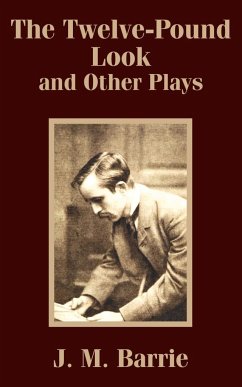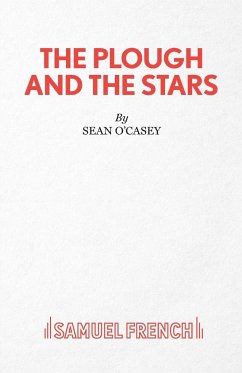
Richard Brinsley Sheridan
Broschiertes Buch
Plays of Richard Brinsley Sheridan, The
Versandkostenfrei!
Versandfertig in 1-2 Wochen

PAYBACK Punkte
16 °P sammeln!




Plays of Richard Brinsley Sheridan, The
Richard Brinsley Sheridan (1751-1816) was an Irish playwright, poet, and politician, renowned for his sharp wit and enduring contributions to English theatre. His works, particularly his comedies, are celebrated for their clever dialogue, engaging characters, and satirical critique of 18th-century society. Born on October 30, 1751, in Dublin, Ireland, Sheridan was the son of Thomas Sheridan, an actor and educator, and Frances Sheridan, a novelist and playwright. He was educated at Harrow School in London, where he developed his interest in literature and drama. Sheridan's first major success came with "The Rivals" (1775), a comedy that remains a staple of English theatre. He followed this with "St. Patrick's Day" (1775) and "The Duenna" (1775), a comic opera that was highly successful in its time. His most famous play, "The School for Scandal" (1777), is a brilliant satire on the gossip and hypocrisy of high society. It solidified his reputation as one of the leading playwrights of his era. Sheridan also wrote "The Critic" (1779), a satire on the theatrical world and the critics who influence it. Sheridan's plays have endured for their clever humor, insightful social commentary, and memorable characters. His works are still performed regularly and studied in literature and theatre courses. "The School for Scandal" and "The Rivals" remain his most famous and frequently performed plays, showcasing his talent for comedy and satire. Sheridan's influence extends beyond literature to politics and theatre management, making him a multifaceted figure in British cultural history.
Produktdetails
- Verlag: Fredonia Books (NL)
- Seitenzahl: 468
- Erscheinungstermin: 4. März 2002
- Englisch
- Abmessung: 216mm x 140mm x 27mm
- Gewicht: 655g
- ISBN-13: 9781589636538
- ISBN-10: 1589636538
- Artikelnr.: 21732355
Herstellerkennzeichnung
Libri GmbH
Europaallee 1
36244 Bad Hersfeld
gpsr@libri.de
Für dieses Produkt wurde noch keine Bewertung abgegeben. Wir würden uns sehr freuen, wenn du die erste Bewertung schreibst!
Eine Bewertung schreiben
Eine Bewertung schreiben
Andere Kunden interessierten sich für











